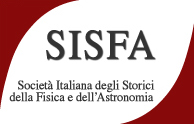Speaker
Description
Personal culture can be considered as that rich knowledge that makes people able of a broad vision, new ideas, and personal reflections about reality. With social culture, instead, we mean those habits, values and behaviours adopted by a given society. But we can also consider disciplinary culture, i.e., the one “identified” by a disciplinarily differentiated group, like physicists. It is from this last point of view that often scientists complain of a lack of diffuse scientific culture. This fact comes from the observation that, indeed, few people think physics is able to touch, besides people’s minds, also people’s hearts. However, even scientists themselves rarely wonder why, and in what sense, science should really be a cultural part of the whole society.
The Physics Education Research Group of the University of Milan strongly believes that awareness of the importance of cultural aspects of physics should be highlighted, and placed at the base of physics education. In this talk, we will mainly focus on our work on the historical-philosophical-educational aspects related to the birth of quantum physics, the challenges it generates and the perspectives it opens up for a general overview of the problem. We will discuss motivations, proposed methods, and tools to manifest physics as culturally strongly intertwined with the vision of the world and of life of each of us.

